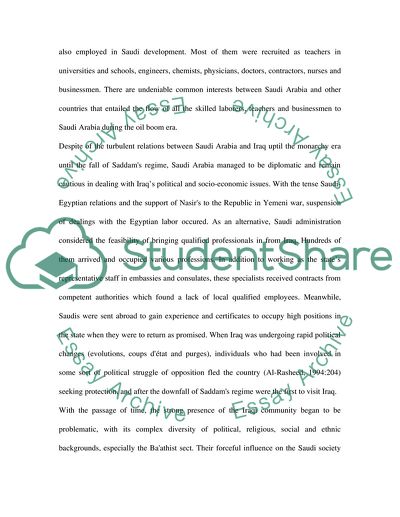Cite this document
(“Iraqi ommunity in Saudi Arabia Essay Example | Topics and Well Written Essays - 3250 words”, n.d.)
Iraqi ommunity in Saudi Arabia Essay Example | Topics and Well Written Essays - 3250 words. Retrieved from https://studentshare.org/social-science/1568117-chapter-one-profile-of-iraqi-community-in-saudi-arabia
Iraqi ommunity in Saudi Arabia Essay Example | Topics and Well Written Essays - 3250 words. Retrieved from https://studentshare.org/social-science/1568117-chapter-one-profile-of-iraqi-community-in-saudi-arabia
(Iraqi Ommunity in Saudi Arabia Essay Example | Topics and Well Written Essays - 3250 Words)
Iraqi Ommunity in Saudi Arabia Essay Example | Topics and Well Written Essays - 3250 Words. https://studentshare.org/social-science/1568117-chapter-one-profile-of-iraqi-community-in-saudi-arabia.
Iraqi Ommunity in Saudi Arabia Essay Example | Topics and Well Written Essays - 3250 Words. https://studentshare.org/social-science/1568117-chapter-one-profile-of-iraqi-community-in-saudi-arabia.
“Iraqi Ommunity in Saudi Arabia Essay Example | Topics and Well Written Essays - 3250 Words”, n.d. https://studentshare.org/social-science/1568117-chapter-one-profile-of-iraqi-community-in-saudi-arabia.


